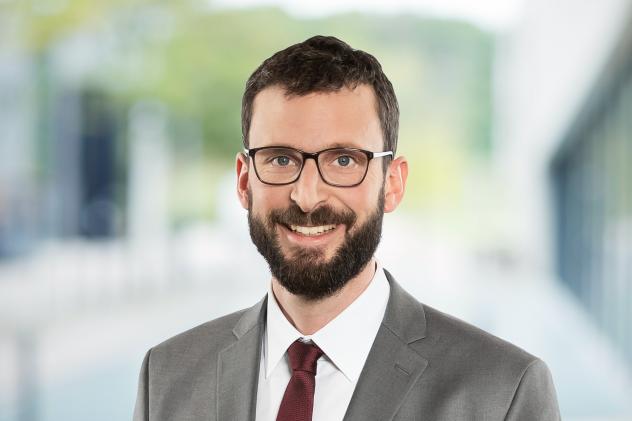
An overview of the projects funded from the funding line “Else Kröner Schools for Medical Scientists” can be found here.
For the improvement of medical research it is necessary that natural scientists and fundamental research scientists work on medical issues as well (Medical Scientists). Although this is already the case in many areas, the research often has a theoretical orientation or lacks a deeper understanding of medical prerequisites, clinical consequences and the conditions behind medical action taken.
Else Kröner-Fresenius-Stiftung wants to support medical faculties and university hospitals in Germany within the framework of scientific graduate study programs, to improve the establishment of young, highly talented natural scientists in the medical sector, and to optimize their research in the sense of the targeted objective, meaning better treatment for patients.
To achieve this, the Else Kröner-Fresenius-Stiftung is issuing a call for proposals toward establishing up to three Medical Scientist graduate study program endowed with a total of EUR 1.1 million each for a term of four years. The programs can be situated in either the doctoral or post-doctoral phase.
Specific, patient-oriented research projects are supposed to be worked on and developed further in the course of this graduate study program, accompanied by an interprofessional advanced training program.
Please always take note of our current calls for applications/proposals for this line of funding. You can find them in the menu “Current Topics” under Call for Proposals.
Submitting the Paper of the Month:
We invite all project managers, fellowship recipients and members of graduate study programs to submit their publications that have emerged from funding as Paper of the Month. You can find more information here. You can find an overview of the Paper of the Month here.
Else Kröner Schools for Medical Scientists 2022
Dresden Medical Scientist College: ONCOnnect
The Else Kröner School for Medical Scientists entitled “ONCOnnect” focuses on new therapies and diagnostic instruments in the field of personalized oncology. This occurs in four subject areas: Alongside the development of robot-supported surgical assistance systems and image-guided, high-precision irradiation techniques, projects are equally planned in the area of personalized cell therapy products and the utilization of computer-based simulations. ONCOnnect shall be closely affiliated with the Dresden School of Clinical Science. Natural scientists and physicians work hand in hand on both the care and supervision level as well as on the graduate fellows level in order to implement the transdisciplinary idea posed by the program to the best possible degree while ensuring a close interlinkage thereof.
Spokespersons: Prof. Dr. Dr. Esther G. C. Troost, Prof. Dr. Frank Buchholz, Faculty of Medicine and University Hospital Carl Gustav Carus
TheRNAtics: RNA-based therapy strategies in tumor immunology and immune-mediated diseases
Physicians work hand in hand with various disciplines from the basic sciences on new developments such as mRNA-based vaccines. The Else Kröner Graduate Program for Medical Scientists in Mainz therefore wants to establish a sustainable concept for the training of Medical Scientists, their research, and the research they conduct on RNA-based immunotherapies. Medical Scientists will work closely together with Clinician Scientists within the program and find an optimal research environment for their projects in structures such as the Research Center for Immunotherapy or the Helmholtz Institute for Translational Oncology. The graduate fellows are additionally supported by an abundant range of training offers conceived by the Mainz Research School of Translational Medicine.
Spokesmen: Prof. Dr. Özlem Türeci, Prof. Dr. Tobias Bopp, University Medical Center Mainz and Helmholtz Institute for Translational Oncology (HI-TRON)
nextGENERATION: ReGENERAte Organ FunctION
The Else Kröner Graduate Program for Medical Scientists entitled “nextGENERATION” is targeted toward setting off on new paths in the field of regenerative medicine. Young postdoctoral graduates in natural sciences are trained in order to close the gap between fundamental research and clinical practice. The postdoctoral fellows’ research projects within the program place an emphasis on the use of induced pluripotent stem cells (iPSC) and gene therapy approaches with the aim to develop therapies to repair tissue and organs. The graduate program allows direct insights to be gained into the requirements for patient care and promotes the attainment of scientific self-reliance, inter alia via own project budgets on the part of the postdoctoral fellows. Individual mentoring and international exchange top off the opportunities for personal career development.
Spokesman: Prof. Dr. Nico Lachmann, Institute for Experimental Hematology, MHH Hannover Medical School
Else Kröner Schools for Medical Scientists 2021
The following locations were chosen in 2021 and are funded with a total of EUR 1 million each for a term of four years:
ClinBrAIn: Artificial Intelligence for Clinical Brain Research
Advances in artificial intelligence (AI) have the potential to improve medical research and practice, but it is often enormously difficult to translate theoretical advances in AI research into medical practice. The goal of the Else Kröner Medical Scientist Kolleg ClinBrAIn is to help close this gap. It aims to train 'Medical Machine Learning-Scientists' who, together with clinical experts, will develop and apply tailored AI methods for clinical problems. ClinbrAIn, which is led by Prof. Jakob Macke together with PD Dr. Kathrin Brockmann, and Prof. Martin Giese, is a joint initiative of research groups from AI research (the Cluster of Excellence Machine Learning, the Tübingen AI Center and the Bernstein Center for Computational Neuroscience) with clinical groups of the University Hospital and the Hertie Institute for Clinical Brain Science.
Spokesman: Prof. Dr. Jacob Macke, Bernstein Center for Computational Neuroscience und Exzellenzcluster Machine Learning, University of Tübingen
InFlame – Dynamik von Entzündungsreaktionen
Viele schwerwiegende Erkrankungen, darunter Infektionen, Krebs und neurologische Störungen, sind durch Entzündungsreaktionen charakterisiert. Diese tragen maßgeblich zum Schweregrad der Krankheit bei, jedoch sind derzeit für viele Entzündungsreaktionen keine effektiven Therapien bekannt und es bleibt nur eine symptomatische Behandlung. Die Erforschung dieser Entzündungsprozesse und ihrer zugrundeliegenden komplexen Zusammenhänge setzt eine spezifische Kombination von wissenschaftlichen Kenntnissen, Expertisen und modernsten Untersuchungsmethoden voraus. Ziel des Else Kröner Medical Scientist Kollegs „InFlame“ ist es daher, promovierte Grundlagenwissenschaftlerinnen und -wissenschaftler in die translationale Forschung einzubinden, ihre wissenschaftliche Karriere zu unterstützen und eine Grundlage für die Entwicklung effektiver Behandlungsmethoden von entzündlichen Erkrankungen zu schaffen. Der Standort Münster bietet dafür mit seinem Medizin-Schwerpunkt Entzündung und Infektion beste Bedingungen. Durch den Schwerpunkt sind zahlreiche Forschungskonsortien und Netzwerke vorhanden, die den Kollegiatinnen und Kollegiaten ein optimales wissenschaftliches Umfeld mit modernster Infrastruktur und eine direkte Anbindung an bestehende translationale Projekte und klinische Studien ermöglichen. So fließen die Forschungsergebnisse der Kollegiatinnen und Kollegiaten direkt in translationale Ansätze.
Sprecherin: Prof. Dr. Petra Dersch, Institut für Infektiologie, Zentrum für Molekularbiologie der Entzündung, Westfälische Wilhelms-Universität Münster
Here you can find further information.
An interview with program spokesperson Prof. Petra Dersch can be found here.
University Medicine Essen Medical Scientist Academy
Progress in data science, life science and technical disciplines places great demands on physicians and researchers, who must rapidly implement the latest finding from these disciplines into benefits for patients. Especially in oncology, interdisciplinary collaboration between scientist and clinical physicians is urgently needed. With the resources of the West German Cancer Center (Westdeutsches Tumorzentrum, WTZ), which is one of the leading cancer centers in Germany, the Medical Faculty will establish an Else Kröner School for Medical Scientists, which will focus on the application-oriented education of young researchers. The fellows will work closely with researching physicians from the Clinician Scientist program, which already exists at the site. Our research program is focused on the discovery of new markers for tumor diseases and the identification of new therapeutic approaches. The projects can assess patient data and bio-samples from clinical departments and the WTZ. At the interface between natural science and medicine, they take advantage of the synergies with other local structures, which already promote young scientists.
Spokesman: Prof. Dr. Sven Brandau, Ear, Nose, and Throat Clinic, University Hospital Essen
